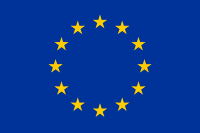Impact & Value Chains
Impact and Value Chains
About this process
This process belongs to Guidelines for CHIs Digital Transformation
The unavoidable digital transformation of CH institutions requires the development of overarching institutional strategies that start from a reflection on how digital operations will impact the whole of the institutional mission. It is important to understand, however, that this goes beyond the current mission of the institutions.
The unavoidable digital transformation of cultural heritage institutions requires the development of overarching institutional strategies that start from a reflection on how digital operations will impact the whole of the institutional mission. It is important to understand, however, that this goes beyond the current mission of the institutions.
It is not only about what digital technologies can mean for the CH institution, but also how the CH can reinvent and/or adapt its mission and underlying business model in a highly interconnected world, in which the relationship between the stewards and guardians of heritage on the one hand, and the stakeholder communities and audiences on the other have been fundamentally changed. In what follows some essential preconditions for successful digital strategies are explored, starting with the need for capacity building over the value of collaboration in networks up to a discussion of what this means for the institutional value chain.





Share: